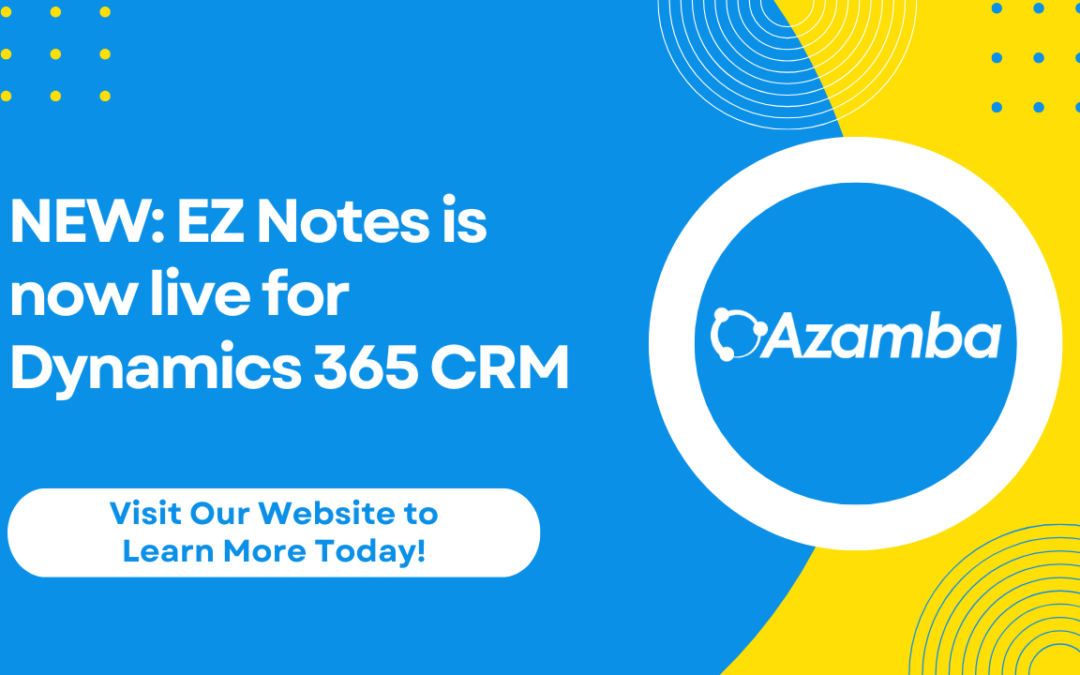Leads vs. Opportunities: What’s the Difference?
Leads vs. Opportunities: What’s the Difference?
Those differences matter!
On past episodes of CRM 101, we’ve defined some important, entry-level CRM terms you’ll need to know as you begin your CRM exploration or implementation.
But I still often get asked the difference between a lead and an opportunity in CRM. So let’s dive into that today.
Leads
A lead is a contact or company in your system that has in some way indicated interest in your products or services, but has not yet been qualified by your marketing or sales teams. And so it’s really just this data or list of data that you might have, whether you’ve attracted that information from purchasing a lead list, going to a trade show, creating an online lead magnet, or however else. That lead is sitting inside of CRM and needs to be cultivated and promoted to become anything more than a lead.
So let’s just think of leads as little baby fish sitting in the guppy pond together. They have potential, but they aren’t ready to be fished out just yet.
Once you actually make contact and confirm interest, though, you can qualify or promote a lead. The fish is growing!
What that normally means is that you turn the lead into an account or customer or company, whatever you use as your main entity in CRM. And when you convert it, you’re then able to create an opportunity attached to that record.
So what’s an opportunity?
Opportunities
An opportunity is a potential sale. A qualified lead doesn’t specifically become an opportunity itself. A lead gets promoted to become an account, and the account has an opportunity attached to it.
So let’s say the lead is the baby fish. As you promote that lead through your sales pipeline, it turns into a big fish, and is worth fishing for. That big fish can have potential sales associated with it, which are opportunities.
So opportunities are just the potential sale itself. Opportunities aren’t the people or companies that we’re communicating with.
Additional opportunities are associated with existing customers for repeat sales (we can catch each fish more than once!), and they’re associated with prospects, because we hope to make a sale with them someday.
So there are all these opportunities that could be associated with those records, and each represents an opportunity to make a sale. We want those opportunities to be attached as soon as a lead gets promoted to an account or company record inside your CRM so we can work to close those sales. We can then in the future create new opportunities for further sales with existing customers.
To recap…
Leads are unqualified contacts or companies inside of your system. Once you qualify them, they become accounts or companies, depending on your CRM solution. And those accounts and companies can have multiple opportunities associated with them.
Need help organizing your contacts?
Request a free data quality consultation today! Our highly-experienced consultants will help you identify opportunities to improve your current record-keeping system and maximize the value of your information!
Azamba Launches EZ Notes: A Smarter, Simpler Way to Take and Manage Notes in Dynamics 365 CRM
Chicago, IL – [March 19th, 2025] - Are messy, disorganized notes wasting your team’s time and leaving critical details lost in the shuffle? Do you spend more time searching for information than acting on it? EZ Notes is here to end the frustration and take the chaos...
Powerful New Updates to Accelerate Sales for Microsoft Dynamics 365 CRM Users
Chicago, IL – [March 5th, 2025] – Azamba is excited to announce the release of EZ Buttons 3.1. This powerful CRM Add-On for Microsoft Dynamics 365 simplifies tasks and makes CRM a breeze to use. With this CRM Add-On, you will work faster and smarter with less...
Azamba releases EZ Buttons 3.0!
Chicago, IL – [November 20th] - We are thrilled to bring you EZ Buttons 3.0, a game-changing update packed with powerful tools to streamline your sales process and help you get more done, faster. With EZ Buttons, turn time-consuming, multi-step tasks into quick,...
Microsoft Dynamics 365 Business Central + CRM Integration Demo | Dynamics Deep Dive Series
Stay Connected Without Switching Systems If your team is jumping between tools just to get a full picture of a customer or transaction, you’re losing time. You might even be missing opportunities. The integration between Microsoft Dynamics 365 and Business Central...
How to Track Your Goals and Metrics in Microsoft Dynamics 365 CRM | Dynamics Deep Dive Series
Set and Track Your Goals, All From CRM Goal tracking shouldn’t require extra work. If your team is still updating spreadsheets or switching between apps just to see where they stand, it’s time for something better. With Dynamics 365, you can monitor performance,...
Why MSP’s Should Add CRM to Their Solution Portfolios
We’re entering a new era in CRM All the old reasons for customers buying CRM are still valid but the advent of AI is making the case for renewed interest in CRM. To modify an adage, “If it’s interesting to my customers, then it is fascinating to me!”. AI is...
Boost Your MSP Earnings with Strategic Partnerships
Time is money, we’ve been told since childhood The idea is that people should focus their attention on the things that bring value to them and avoid the things that don’t. Since time is a precious resource, it makes sense to try and maximize its utility as it’s the...
CRM Launch in 5 Weeks – Get Results Fast!
New to CRM? Get it Right from Day One CRM is no longer a luxury. It’s an essential tool for businesses that want to stay competitive, responsive, and move fast. But for a lot of businesses, CRM quickly turns into a nightmare. Imagine this: You spend thousands of...
How Most CRM Projects Fail & Yours Won’t | CRM Strategy
Stop The Risk of Failure Before It Starts Did you know that, according to a Gartner study, between up to 70% of CRM implementations fail? If you're a small or medium-sized business, this can seriously impact your budget, and you could lose out on profitable...
Do This to Avoid Wasting Time and Money With Your CRM
CRM Strategy: The Key to Avoiding a Costly Mistake CRM can either be a game-changing investment for your business or a massive waste of time and money. The difference depends entirely on your approach. Like many businesses, you want to boost sales, increase customer...
Mariam Florio is the director of CRM implementation at Azamba. She helps new users get up-and-running with their CRM solutions, and experienced users get more out of their systems.
Mariam has been a consultant in the software space for 16 years, and has spent the last 11 focused exclusively on CRM. She delivers intelligence, friendliness, and efficiency in every customer interaction.
Related articles:

Azamba Launches EZ Notes: A Smarter, Simpler Way to Take and Manage Notes in Dynamics 365 CRM
Chicago, IL – [March 19th, 2025] - Are messy, disorganized notes wasting your team’s time and leaving critical details lost in the shuffle? Do you spend more time searching for information than acting on it? EZ Notes is here to end the frustration and take the chaos...

Powerful New Updates to Accelerate Sales for Microsoft Dynamics 365 CRM Users
Chicago, IL – [March 5th, 2025] – Azamba is excited to announce the release of EZ Buttons 3.1. This powerful CRM Add-On for Microsoft Dynamics 365 simplifies tasks and makes CRM a breeze to use. With this CRM Add-On, you will work faster and smarter with less...



